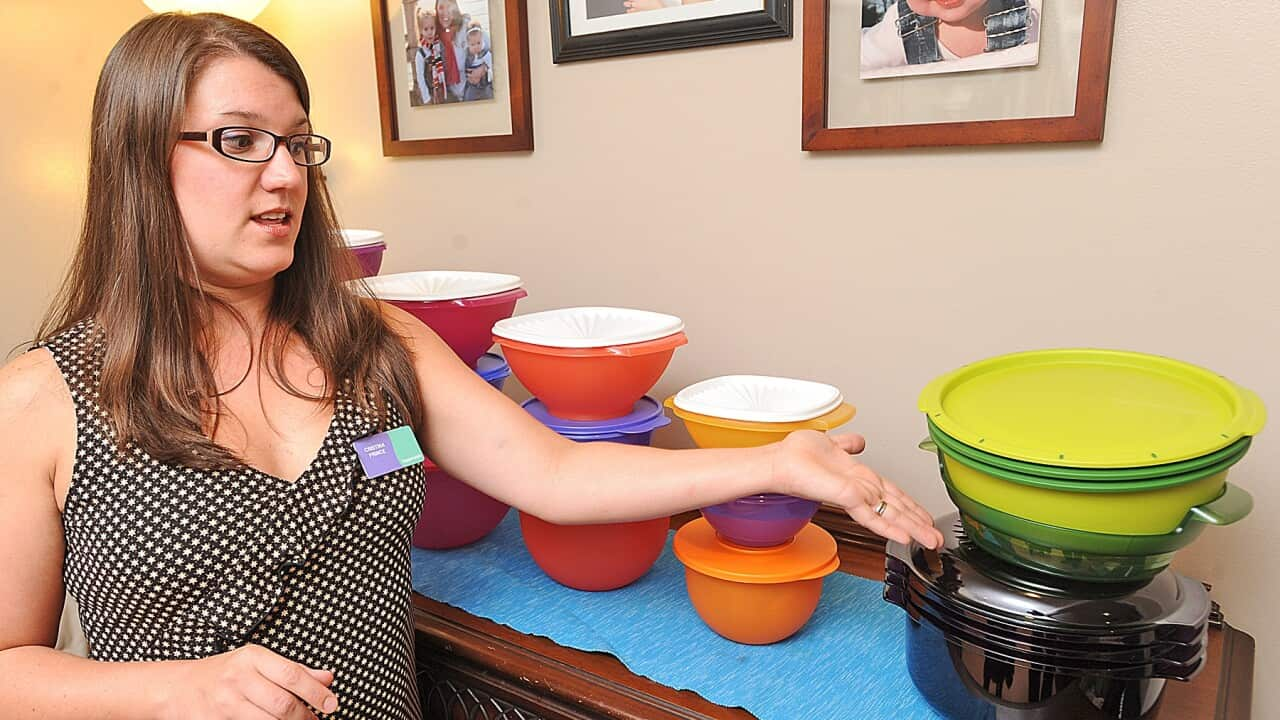TRANSCRIPT
Brightly coloured plastic food storage containers made by the U-S company Tupperware used to be in high demand.
Tupperware marketed its products at people looking for high-end kitchen storage solutions and one of its notable marketing ploys was having people host and sell its products at Tupperware parties in their own homes.
But the company that's based in Orlando, Florida has filed for bankruptcy with dwindling demand since 2021 and debts of more than $1.7 billion.
A researcher in consumer behaviour, Jennifer Christ from the Fredonia Group says shoppers used to buy Tupperware as they considered it a high-end product.
"So, people who wanted something that was good and something that was going to last would be looking for a Tupperware item. But more and more, a lot of the younger people looking for that top end item are looking for a different material, moving away from plastics, looking for something that's got that sustainability edge on it. You know, glass containers, stainless steel containers, silicone containers, all those have a profile that's more attractive to the younger generation than a classic plastic Tupperware."
Joe Derochowski is with market research firm Circana.
He says demand for food storage products has increased since the onset of the pandemic, just not for Tupperware.
"All of COVID really has had a dramatic impact on how we eat and drink, in part because of the hybrid life that we have. We are eating more meals at home, especially because we're working from home. And as such, by having more meals, eating at home, there's just a greater demand on food storage part, not only just for fresh foods, but also for leftovers. So, one of the ways to make life a little bit more convenient is you will eat more leftovers during this period. So, food storage has a greater demand there."
He says greater demand, changing tastes and an increase in competition made it difficult for Tupperware.
"Not only the number of companies playing into this space, but also the different types of materials and different types of food stored. So, it's just a greater demand to solve the new needs that consumer has."













